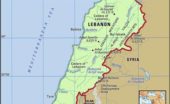Molly Minturn - My family is heartbroken to share that my father died in surgery on Monday, Feb. 10. It…
Wednesday Night #1575
Written by Diana Thebaud Nicholson // May 9, 2012 // Wednesday Nights // Comments Off on Wednesday Night #1575
The Prologue
Peter Berezin will share with us the conclusions of two BCA Reports (April and May).
The accompanying note to the April report explains:
The global growth outlook remains very fragile. The situation in Europe is likely to flare-up again as the crisis spreads to the Iberian Peninsula. In the U.S., rising gasoline prices and the prospect for significant fiscal restraint in 2013 increase the odds of a growth scare later this year.
In this month’s Special Report, BCA Strategist Annie Liu discusses the long-term outlook for China and the strategies that investors can employ to profit from the country’s shift from an economy driven by export growth to one driven by domestic demand.
The May Report summary states that:
The euro crisis is at risk of engulfing the Iberian Peninsula and U.S. growth is likely to slow in the second quarter. In the current environment, reasonably cheap hedges can be obtained by being long the yen against the euro, shorting the Russell 2000 against the S&P 500, and buying long-dated VIX contracts. The Special Report in this month’s Bank Credit Analyst argues that the sharp increase in U.S. core inflation over the past year is likely to reverse course. However, there is a reasonable chance that inflation will accelerate significantly in the second half of the decade, a risk that the market has not adequately priced.
Elections in France and Greece
Of course, all of this was written well before we knew the results of the French presidential elections and the Greek Election Surprise [that] Rejects ‘Barbarism’ of Bailout Austerity
We aren’t quite sure why this is considered a surprise. The pundits will be out in full force as of Monday morning, but we already know how The Economist feels “The rather dangerous Monsieur Hollande — The Socialist who is likely to be the next French president would be bad for his country and Europe” and Bloomberg has already told us that the markets aren’t thrilled — Euro Falls After Hollande Wins French Election
More on the world economy
On the other side of the world, according to Emerging Markets, The Chiang Mai Initiative Multilateralized (CMIM), the new Asian financial safety net, boosted with fanfare in Manila this week is tantamount to the creation of an Asian Monetary Fund.
We continue to be impressed by the quality of the readings proposed by Open Canada and would particularly recommend Ian Bremmer: “These Are The Countries That Will Win And Lose In The New Global Paradigm”
Tony Deutsch, meantime calls our attention to Economic outlook: Some genuine uncertainties and comments: Rarely do I read something and wish I had written it. Here is one of those.
For those who are concerned by the latest U.S. job figures, the Brooks and Shields discussion on PBS Newshour reminds us that (Brooks) “… the productivity of the American economy is doing pretty well. Companies are doing a good job of producing stuff. They are just not using people to do it. And so that is the structural problem”; (Shields) “… We are producing the same amount of goods and services we did with five million fewer workers.”
Kimon adds that he has a whole chapter in his forthcoming book (final draft to be available by the end of May) entitled W-3. Wealth Without Work, dealing with exactly that issue. Do note that Kimon is returning to Montreal on Tuesday May 15th and thereafter will be available to offer a sophisticated analysis of the implications of the French and Greek elections.
And in Canada – Speaking of austerity – OR NOT
Ottawa spending $100,000 for paper flags, lapel pins to mark Diamond Jubilee — Overall, Canadian Heritage expects to spend $7.5-million dollars from the department’s budget for celebrations and commemorations. Of the funds, $2-million will go toward community celebrations, $1.8-million for “awareness initiatives” and $3.7-million for the diamond jubilee medals program.
Of course, there is the coinciding celebration of the 200th anniversary of the War of 1812 In case you tend to think that this is all a wonderful stimulus package, you will probably like “12 about 1812: A bicentennial guide to a dozen good books about the historic war” If, on the other hand, you think the money could have been better spent on the NFB, CBC, etc. you may believe that Mr. Harper should be shown this clip of a short speech by Geoffrey Bloom, Member of the European Parliament.
Quebec students
Once again, the student fee hike/protests/proposed settlement will be on the agenda. Now there’s serious doubt that the deal will fly. According to Rhéal Séguin: “The tentative deal that promised a welcome end to the three-month-long confrontation over tuition-fee hikes in Quebec has run head-on into a wall of student resistance, sending the government scrambling to salvage a fast-deteriorating situation. Students in a half dozen colleges and 10 university faculties and departments voted to reject the agreement on Monday after the Charest government boasted of having won the battle. Students at other schools are set to vote on the deal throughout the week, but the trend is clearly running against it.” We are really not impressed by the government’s handling of the negotiations and wonder why a) the ministers were present rather than being represented at the negotiations; b) why were three union leaders in the room – insofar as we are aware, students are not unionized; c) who was representing the two-thirds of the students who are not on strike?
Mr. Charest is wise to say that there will not be a Spring election on this issue – his government has not covered itself in glory with its handling of it – and what are they going to do if/when the students vote the deal down?
Amidst all of the chatter published on the topic, we recommend Henry Mintzberg’s An appeal to reason to Quebec’s self-absorbed students and Pierre Martin’s more sympathetic “Spoiled Kids? Hardly” while Germain Bourgeois suggests Denise Bombardier’s opinion piece in Le Devoir: Faire accroire … Et si toutes les analyses, toutes les opinions publiées, déclarées, affirmées comme parole d’Évangile rataient la cible sur la crise actuelle au Québec ? Et si Ross Finnie, chercheur à l’Université d’Ottawa dont l’objet d’étude porte sur l’accessibilité à l’université, avait raison ? Ses recherches l’amènent à conclure que ça n’est pas d’abord par manque d’argent au Québec qu’on ne va pas à l’université mais bien plutôt à cause du peu d’importance que l’on accorde à l’éducation supérieure.
Beryl Wajsman’s editorial Time to teach responsibility in last week’s Suburban speaks for a lot of us who are fed up with the demonstrations and the arrogance of these young people (or those who have taken over the movement).
Finally, we would draw attention to Katherine Waters’ thoughtful comment related to the news that any tuition hikes would have to wait until the completion of a review by a proposed universities committee to help deal with financial management concerns . … what I think should be their concerns. On what will the increase be spent? Little goes to teaching, especially undergraduate teaching, where most of the first & second-year courses are taught by underpaid part-timers. Great teachers are rewarded by larger classes, but little in way of salary increase or promotion. While professors in the Business Faculties are hired at roughly 50% more, and in Engineering at roughly 25% more (thus eating up a disproportionate amount of the masse salariale), their students, apparently assured of a higher post-university income, nevertheless pay the same fees as humanities, social sciences, and fine arts students, on whose backs the major portion of student fees fall. … The students should look, not at what Presidents receive, but at the retinues of Associate Vice-Presidents (14 at U de M) under the Vice Presidents. Under Concordia’s Vice-President Legal, there is an office of 13 lawyers and administrators. The students could also examine the structure of the Dept of Education’s administration.
While Quebec is in the throes of the student strike, Guy Stanley has forwarded David Brooks’ column The Campus Tsunami “The elite, pace-setting universities have embraced the Internet. Not long ago, online courses were interesting experiments. Now online activity is at the core of how these schools envision their futures.”
For your calendars: There will be a book launch for John Schwinghamer’s Purple Chips: Winning in the Stock Market with the Very Best of the Blue Chip Stocks on May 31st at Paragraphe Books (2220 McGill College) 6pm
For your entertainment: Susanna Wolff’s Facebook News Feed History of the World: Big Bang to Humans – warning, once you are hooked, this is time-consuming!



